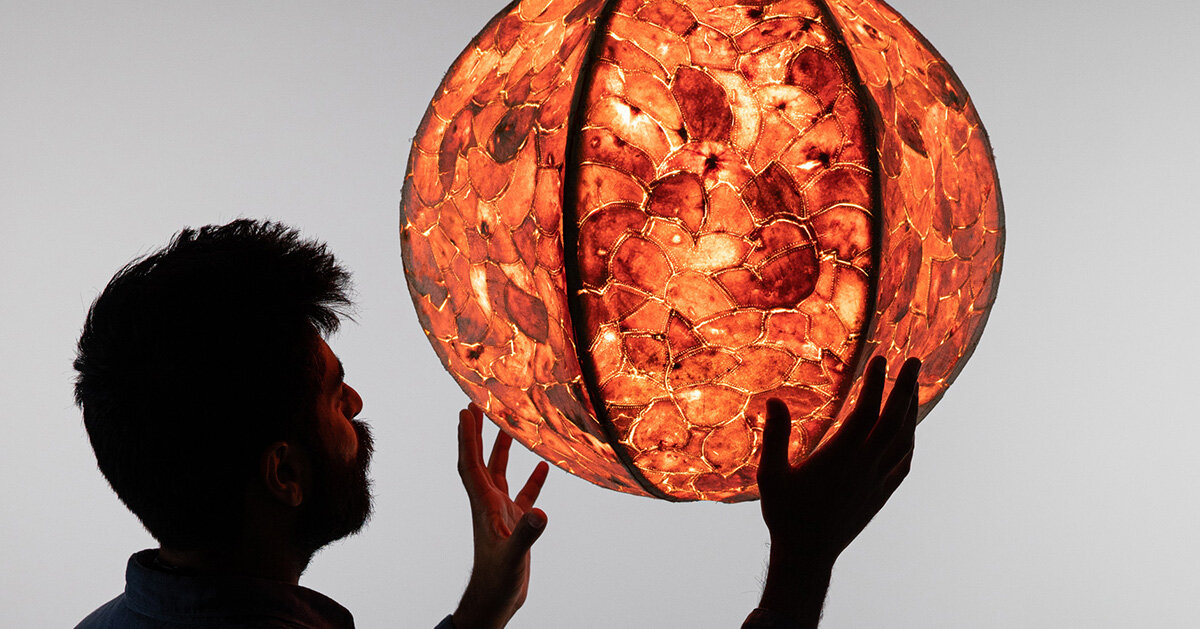Studio Arp’s leather-like material is made from orange peels
Interdisciplinary practitioner Alkesh Parmar, founder of Studio Arp, repurposes orange peel waste into sustainable materials in the Citrus Sinensis project. Incorporating traditional craftsmanship and low-tech processes, the studio explores themes of migration, colonialism, and decentralized design. Showcased at the Material Matters Fair during the London Design Festival, this project includes lighting, objects, and artworks. The work highlights the passing down of craftsmanship through generations and promotes environmental sustainability by maximizing natural resources, drawing on the origins of the orange from the Himalayan foothills.
Through his innovative process, APeel, Parmar transforms waste citrus peel into a versatile material with a wide range of applications. In a crucial phase before the orange peel dries, it becomes pliable like leather, allowing it to be molded and crafted. This leather-like quality varies depending on the citrus type and its environment, making the process adaptable and sustainable. Low-tech craft techniques emphasize the potential of local materials, challenging conventional Western design practices.
all images by Stone Stuart courtesy of Studio Arp, unless stated otherwise
Citrus Sinensis encourages people to reconnect with materials
Studio Arp’s work delves into the concept of dematerializing design, reducing the reliance on industrial processes while encouraging a sustainable and localized approach. By repurposing materials, the London-based studio fosters a deeper connection between people and their immediate surroundings, encouraging them to reconsider their relationship with materials and production methods.
A British-Indian designer and educator, Parmar draws from his family’s lineage of makers within the Hindu Mochi caste, integrating notions of repair and repurposing into his practice. His studio, ARP, combines craft techniques with social and slow-tech design thinking, pushing the boundaries of material research to create composites, fabrics, and cards from orange rind without straining additional resources. As a tutor at the Royal College of Art, he leads discussions on decarbonizing practice, critical making, and decolonizing design.
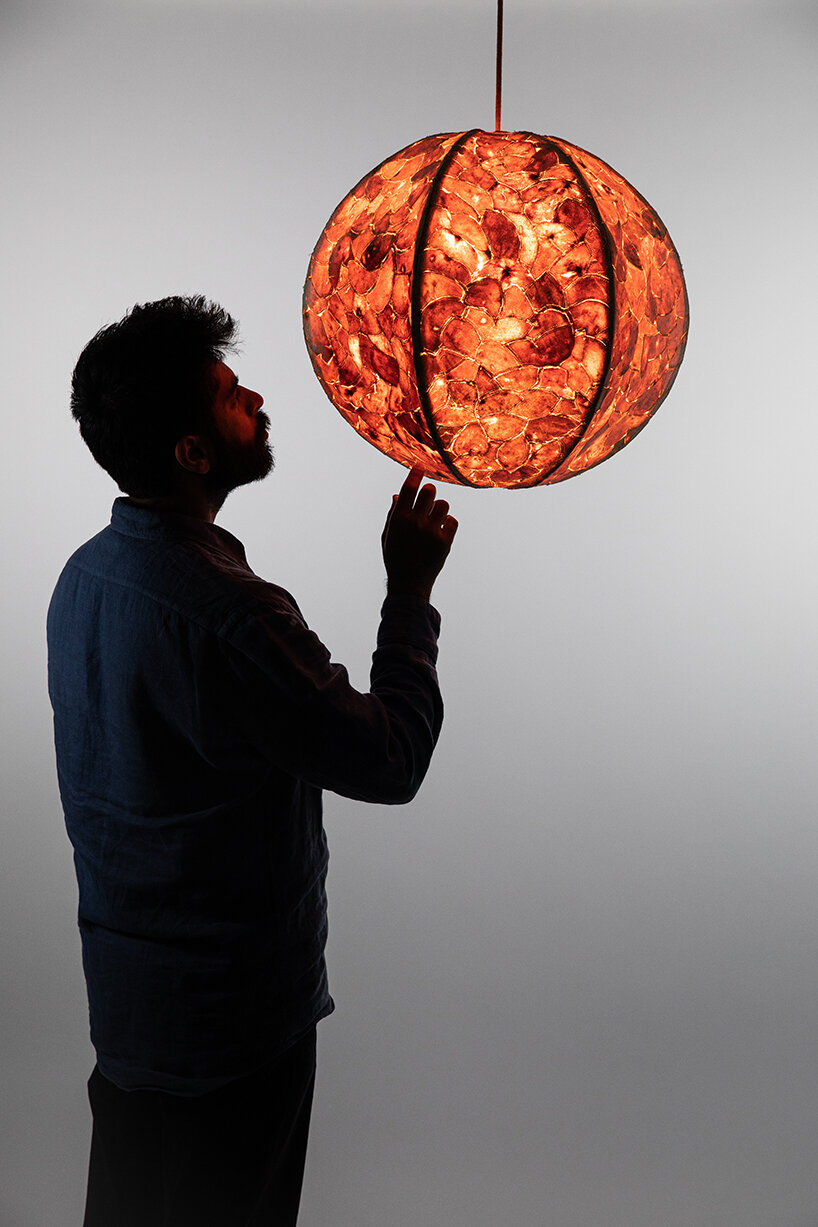
Alkesh Parmar, founder of Studio Arp, repurposes waste orange peels into sustainable materials
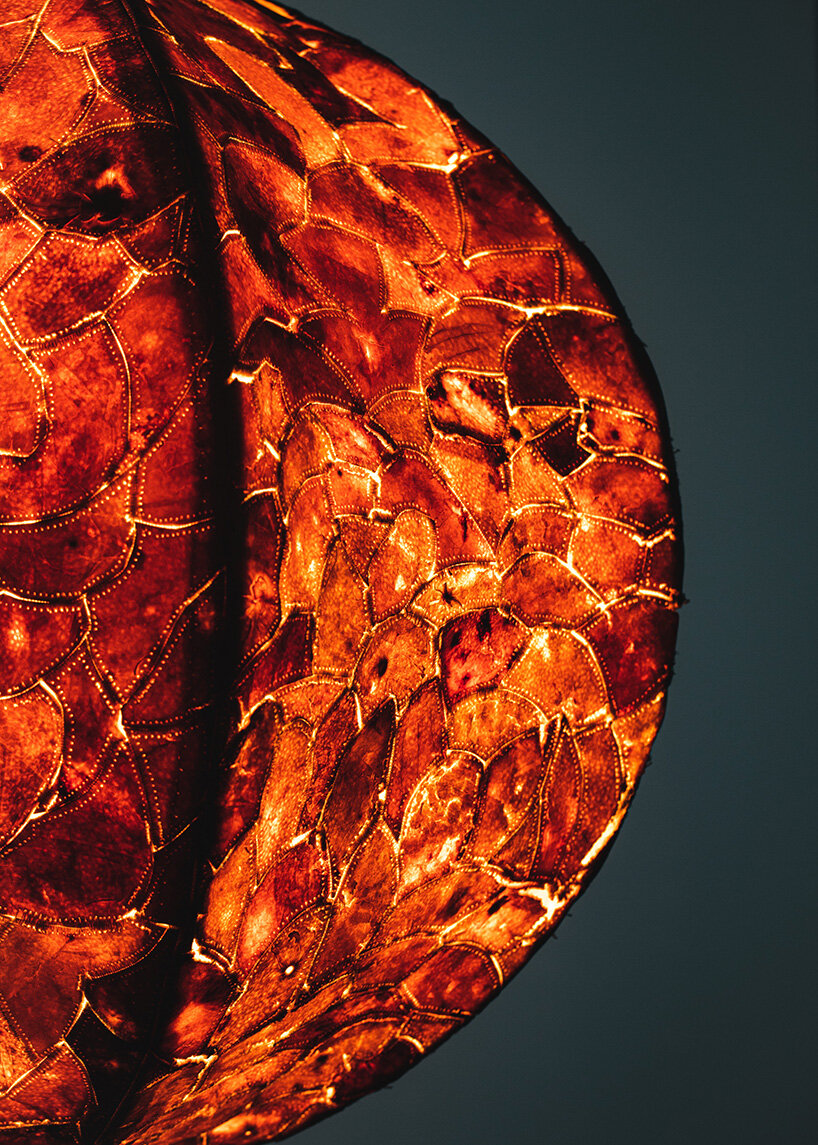
traditional craftsmanship and low-tech processes explore themes of migration and decentralized design
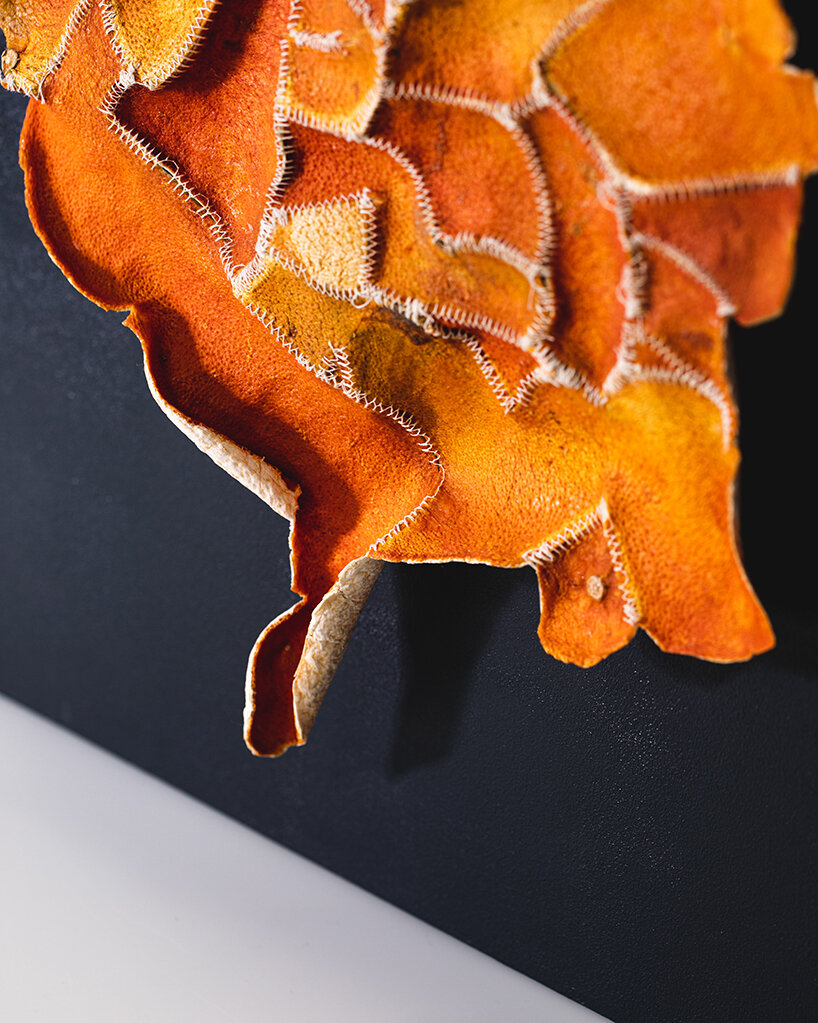
Showcased at the Material Matters Fair during the London Design Festival
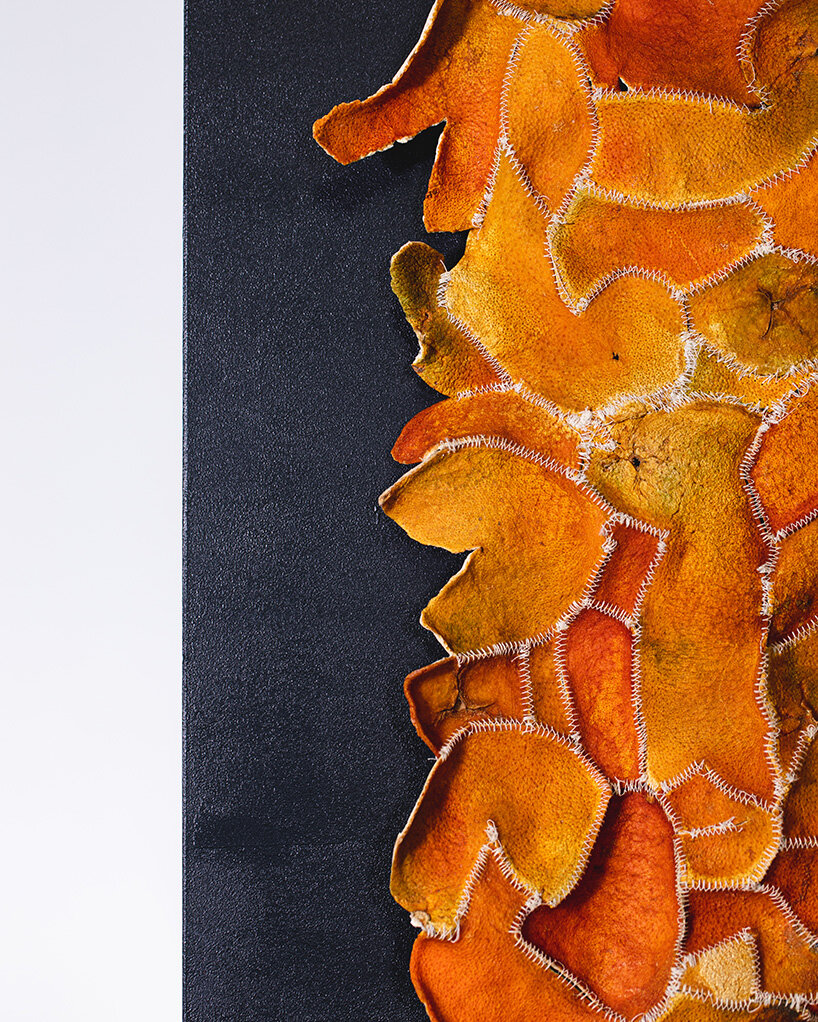
Citrus Sinensis includes lighting, objects, and artworks
